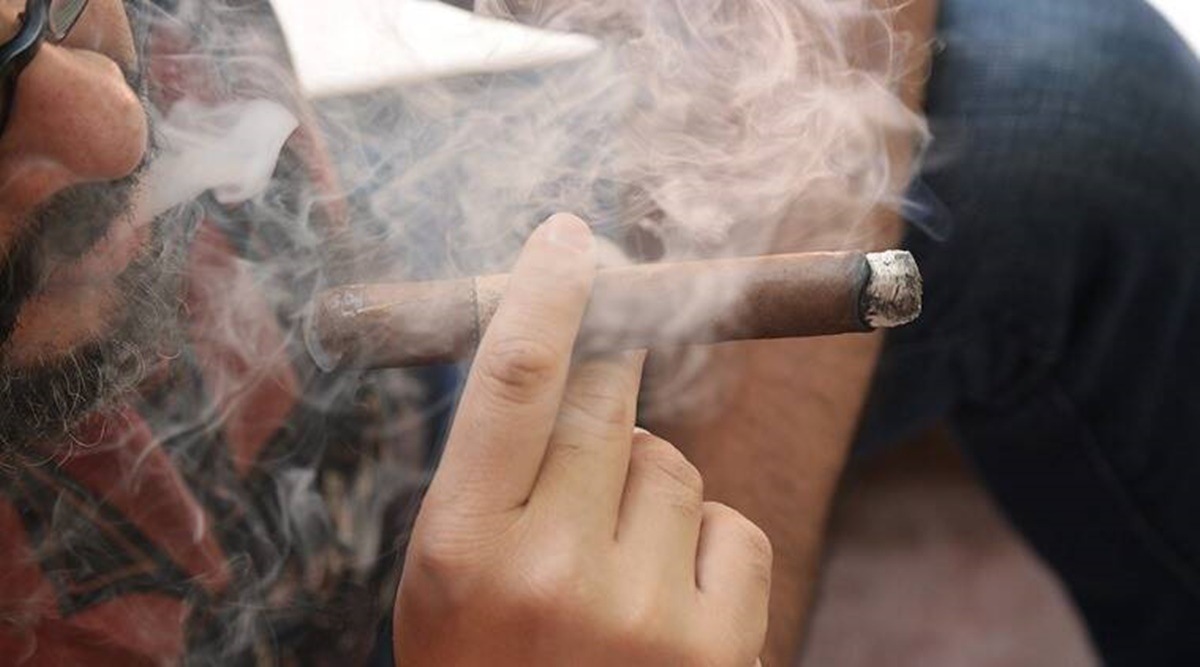In the surveyed sites, 86.6 per cent people were not aware of the order issued by BBMP that mandates the setting up of DSAs as per COTPA regulations to allow smoking.
At 63.68 per cent, cigarette-smoking prevalence is the highest among Karnakata’s adult population when compared to other states, a recent survey conducted to assess tobacco control has found.
The survey conducted by AF Development Care (AFDC), a research agency, found that ground-level implementation of measures required for tobacco control is “erratic” in the country and there is enough ground for improvement.
Sachi Satapathy, principal investigator of the study and AFDC Director, said a reduction in the cultural acceptability of tobacco use was necessary. “By carrying out a comprehensive programme that includes educational, clinical, regulatory, and economic interventions, we can change the social environment that makes tobacco use unacceptable,” he said.
He added that cultural, ethnic, religious, and socio-economic differences were also important in understanding patterns of tobacco use.
He highlighted that highest prevalence of oral cancer in the world is now seen among Indian women.
“This a major gap in FCTC implementation, as there is neither any strategy nor any strong measures in India’s tobacco control policy to come up with a plan to help women cut down on tobacco use. The report calls all stakeholders working on tobacco control to understand this shift and plan accordingly,” he urged.
The study also found that a majority of participants from Karnataka (53.64%) believe that smoking is allowed in some indoor areas.
Along the same lines, a survey report on Designated Smoking Areas (DSA) in Bengaluru, released by Bangalore Medical College and Research Institute (BMCRI) and Bangalore-based NGO MAYA (Movement for Youth Awareness and Alternatives), revealed that there is blatant violation of Cigarettes and Other Tobacco Products Act (COTPA) provisions, and only 1.9 per cent of facilities had no-objection certificates from Bruhat Bengaluru Mahanagara Palike (BBMP) to set up DSA.
In the surveyed sites, 86.6 per cent people were not aware of the order issued by BBMP that mandates the setting up of DSAs as per COTPA regulations to allow smoking.
As per the COTPA provisions, smoking is not allowed in any public place. Any hotel, bar, and restaurant having more than 30 seats should provide a designated smoking area to allow smoking in their premises.
The DSA has to comply with provisions such as having automated doors and exhaust fans to ventilate smoke outside without permeating into the non-smoking area, surrounded by full-height walls on all four sides. This should not be at the entrance or exit of the facility, with signages in English and regional languages stating that it is a smoking area. Moreover, no service should be provided inside the smoking room.
The baseline survey covered important components of DSA rules. Smoking observations in hotels, setting up of a DSA, and NOC status (applied/approved/rejected) by BBMP were observed primarily in the survey.
The survey was carried out in two areas in Bengaluru — Jayanagara and Indiranagar. These two areas were selected keeping in mind the density of population and public places in Bangalore, as a greater number of required sampling units were consolidated in these two zones as per the BBMP list.
Each of the sampled units was visited during a particular time of the day, usually between 4 pm to 8 pm. It was found that only 86.6 per cent of the surveyed sites are not aware of DSA letters issued by BBMP.
“Acquiescence to DSA norms by getting NOC from BBMP was observed in only 1.9% of the hotels, bars, and restaurants. Though the COTPA provisions have been present for almost two decades, a significant number of breaches in law were observed during the survey, emphasizing strict enforcement from the local authority at the earliest. Tobacco contains more than 50 types of various chemicals and has a carcinomatous effect on the body tissues of the user and the passive smoker,” said Dr Ranganath TS, Professor and Head of the Department of Community Medicine, Bangalore Medical College and Research Institute.
“One of our key objectives is to implement DSA rules and increase the compliance in the city hotels, bars, pubs and clubs. This would be achieved through integrated efforts from various departments like BBMP, the excise and the police. Also considering the blatant violation by the hotels, bars and restaurants, the government should amend COTPA and ban DSA completely and save the health of passive smokers,” said Alex Rodriguez, CEO, Bangalore-based NGO MAYA.
Renowned oncologist Dr Ramesh Bilimagga, who is also the advisor to Consortium for Tobacco-Free Karnataka, demanded an amendment to the COTPA and that the provision for setting up DSAs be removed.
“Smoking either directly or passively is a big threat to our health. As the DSAs do not follow all the laid down norms, it will be a sensible decision to ban them. Strict enforcement should be done so that public places are 100 per cent smoke-free,” Dr Bilimagga said.
The report has been handed over to BBMP and other authorities for action.
Source: Read Full Article



